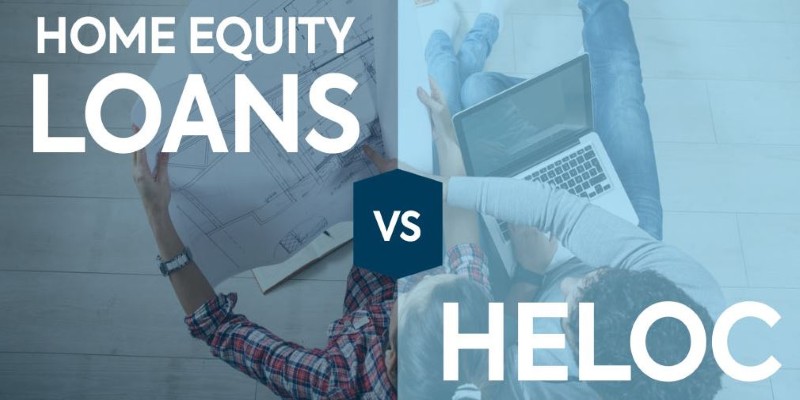When it comes to managing finances in retirement, a reverse mortgage has long been considered a useful tool for homeowners looking to tap into their home equity. However, it’s not the only option available. While a reverse mortgage can provide financial relief for seniors, it also comes with certain risks and limitations. For those seeking other ways to access funds or manage their retirement savings, there are several reverse mortgage alternatives worth considering.
In this article, we'll examine some of these alternatives and their pros and cons. Whether you're looking to avoid the potential downsides of a reverse mortgage or simply exploring other avenues, these options can provide flexibility and security as you move through retirement.
Exploring Alternatives to a Reverse Mortgage
As you approach retirement, it's important to explore all your financial options. While a reverse mortgage can provide some relief, several alternatives might better suit your needs and lifestyle.
Home Equity Loan or Home Equity Line of Credit (HELOC)
A home equity loan or home equity line of credit (HELOC) is another option, besides a reverse mortgage, to tap into the equity of your home. A home equity loan gives you a sum that you pay back in installments over a specified period with a fixed interest rate, so it's great for big one-time expenses such as medical expenses or repairs to your home.

In contrast, a HELOC is more flexible. You borrow on an as-needed basis up to a specified amount, with interest paid only on what you borrow. Interest rates, however, can vary, so it's less certain. Unlike a reverse mortgage, both allow you to keep your home, but both involve monthly payments, which may be difficult for seniors with stable incomes.
Downsizing Your Home
Downsizing your home offers a practical alternative to a reverse mortgage, particularly if your current home is larger than necessary. Selling your property and buying a smaller, more affordable one allows you to unlock home equity, which can supplement your retirement savings. Downsizing typically results in lower mortgage payments, reduced property taxes, and decreased utility and maintenance costs.
While the emotional attachment to a long-time family home can make this decision difficult, downsizing helps regain financial control and avoid accumulating debt. The proceeds from selling your home can be invested in other retirement strategies. However, the moving process and adjusting to a new environment can be a challenge, especially if you've spent many years in your current home.
Renting Out Part of Your Home
Renting out part of your home is a great way to generate extra income while staying in your current property. Whether you rent a room, basement suite, or separate unit, the rental income can help cover daily living expenses, property taxes, and retirement costs. The benefit of this option is that you retain full ownership of your home, allowing you to maintain your lifestyle while earning money.
However, being a landlord comes with its own set of responsibilities, including maintaining the property, handling tenant issues, and ensuring timely rent payments. Additionally, rental income can fluctuate due to vacancies or late payments, creating some uncertainty. If you're ready to take on the responsibilities of renting, this option offers financial flexibility and can effectively supplement your retirement income.
A Personal Loan
A personal loan is another alternative that allows you to access funds without using your home equity. Unlike home equity loans or reverse mortgages, personal loans are typically unsecured, meaning no collateral is required. This makes them appealing to seniors who may not have substantial home equity or prefer to keep it intact. Personal loans are offered by banks, credit unions, and online lenders based on your credit score.
While personal loans provide quick access to cash, they do require monthly payments, which may be difficult for those on a fixed income. Depending on creditworthiness, interest rates for personal loans are generally lower than those for credit cards but may be higher than those for home equity loans.
Annuities
Annuities offer retirees a steady income stream and are an appealing alternative to a reverse mortgage. By paying a lump sum upfront, you receive guaranteed monthly payments, often for life, ensuring you don’t outlive your savings. There are various types of annuities, including fixed, variable, and immediate annuities. Fixed annuities provide consistent payments, while variable annuities may fluctuate based on market performance. Immediate annuities start payments right away.

However, annuities have significant drawbacks, such as high fees and the lack of access to your lump sum once invested. For some seniors, the security of predictable monthly payments may be worth these trade-offs. Still, it's crucial to carefully assess the terms, fees, and long-term implications before committing to an annuity.
Government Assistance Programs
Seniors facing financial challenges can benefit from government assistance programs that provide vital support without tapping into home equity. Programs like Supplemental Security Income (SSI), Medicaid, and the Low-Income Energy Assistance Program (LIHEAP) help with healthcare, housing, food, and utility costs.
While these programs don’t offer access to home equity like a reverse mortgage, they can significantly lower monthly expenses, freeing up income for other needs. Eligibility varies by location, and the application process can be time-consuming, so it’s important to research available resources. Though it may take time to apply, these programs serve as a valuable financial safety net, reducing the need for debt or home equity loans.
Conclusion
There are several viable alternatives to a reverse mortgage that can help seniors manage their finances in retirement. Options such as home equity loans, downsizing, renting out part of your home, personal loans, annuities, and government assistance programs each offer unique benefits and challenges. It's important to evaluate your financial needs, lifestyle, and long-term goals before choosing the right solution. While a reverse mortgage may seem appealing, exploring these alternatives can provide more flexibility and security, helping you maintain control over your finances without the risks associated with tapping into your home’s equity. Choose wisely for a stable future.












